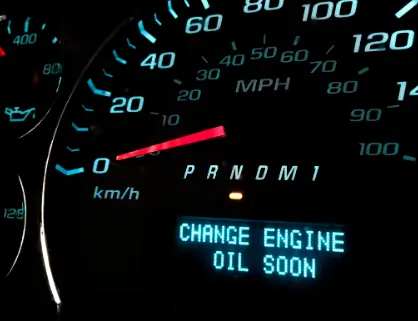Notice a swift decrease in your vehicle’s oil life? Understanding why this happens is crucial for maintaining the health of your engine and ensuring longevity. In this comprehensive guide, we will delve into the factors that lead to rapid oil life depletion and provide insight on how to maintain it more effectively.
Factors Contributing to Quick Oil Life Decrease
Several factors can contribute to a quicker decline in oil life, ranging from your driving habits to environmental conditions:
- Driving Habits: Frequent short trips, heavy acceleration, and towing can accelerate oil degradation.
- Engine Conditions: Older engines or those with pre-existing issues may contaminate oil faster.
- Oil Quality: Lower quality oil or incorrect oil viscosity can impact oil life.
- Environmental Factors: Extreme heat or cold, dust, and stop-and-go traffic conditions can affect oil longevity.
- Maintenance Intervals: Extending oil change intervals beyond the manufacturer’s recommendation can reduce oil effectiveness.
Understanding The Role Of Driving Habits
In Table below, we compare the impact of various driving habits on oil life:
| Driving Habit | Impact on Oil Life |
|---|---|
| Short Trips | Increased condensation and incomplete engine warm-up lead to quicker oil deterioration. |
| Heavy Acceleration | Places additional stress on the engine and oil, resulting in faster contamination. |
| Towing | Higher engine loads require more from the oil, leading to faster breakdown. |
Engine Conditions And Oil Quality

An engine’s condition is pivotal to oil life. Older engines may have worn components that contribute to oil contamination. The type of oil used is also essential. Synthetic oils typically offer better protection and longevity compared to conventional oils.
The Impact Of Environmental Factors
Environmental factors can play a significant role in the reduction of oil life. Dusty conditions can introduce contaminants into the oil, while extreme temperatures can either cause the oil to thin or thicken, impeding its performance.
Why Maintenance Intervals Matter
Ignoring the recommended maintenance intervals can be a costly oversight. Sticking to your vehicle’s suggested oil change schedule ensures that oil is replaced before it becomes too degraded to perform its function effectively.
How to Extend Your Vehicle’s Oil Life
Extending your vehicle’s oil life is not only great for the engine but can also have economic benefits:
- Regular Maintenance: Adhere to the service intervals recommended by your vehicle’s manufacturer.
- Choose the Right Oil: Select oil that’s right for your vehicle’s engine and the conditions you drive in.
- Monitor Your Driving Habits: Opt for smoother acceleration and try to avoid unnecessary short trips.
- Check Levels and Quality Frequently: Regularly check your engine oil level and look out for color changes or metal particles.
- Use Quality Fuel: Higher quality fuel can reduce engine deposits and, consequently, oil contamination.
By taking these steps, you can ensure that your oil maintains its integrity longer, protecting your engine and saving you money in the long run.


Leave a Reply